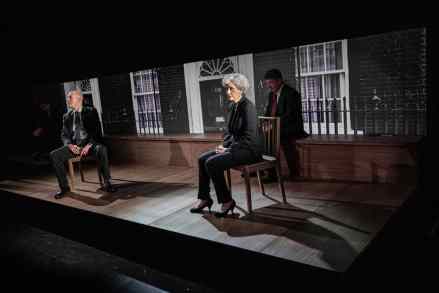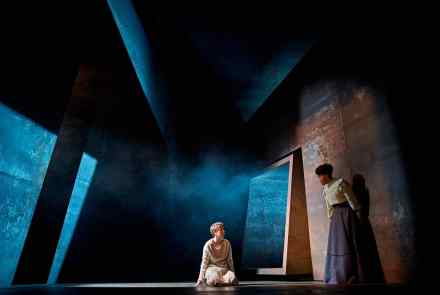Eddie Izzard’s one-man Hamlet deserves top marks
Every Hamlet is a failure. It always feels that way because playgoers tend to compare what they’re seeing with a superior version that exists only in their heads. And since disappointment is inevitable, it’s worth celebrating the successful novelties in Eddie Izzard’s solo version. He makes some valuable breakthroughs, especially in the comedic sections. Izzard makes some valuable breakthroughs. His Gravedigger is funny. Actually funny. That’s rare His Gravedigger is funny. Actually funny. That’s pretty rare. He plays Rosencrantz and Guildenstern as sock-puppets whose robotic yapping he imitates with his hands. Brilliant stuff. Well worth copying. His Osric is a greasy, cocktail-party flatterer with a faint Mexican accent. Osric, the





